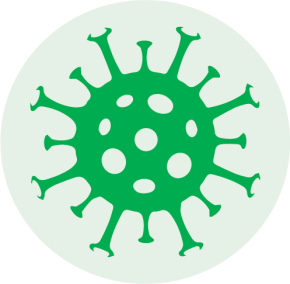

EDCTP portfolio: Emerging diseases
index


The periCOVID-Africa project is generating vital data on COVID-19 infections in pregnant women and their offspring in sub-Saharan Africa.
COVID-19 in pregnant women

Very little is known about the specific impact of COVID-19 on pregnant women, whether the virus can be transmitted to babies in the womb, and whether maternal antibodies might be transferred across the placenta. This is particularly the case in sub-Saharan Africa, where frequent infection with HIV, TB, syphilis or malaria could add further complications.
Moreover, maternal and neonatal mortality rates are still relatively high, and typically only around half of mothers receive the recommended four antenatal health visits. Opportunities to monitor the impact of COVID-19 on pregnant women and their offspring are therefore limited.
The challenge

The periCOVID-Africa project aims to generate key data on COVID-19 in pregnant women and newborn babies, taking advantage of two established cohorts in sub-Saharan Africa.
The first cohort, set up through the EDCTP-funded PREPARE project, covers 70,000 pregnant women and their infants in Kampala, Uganda. The PREPARE project is following up women from the early stages of pregnancy and infants up to the age of three months to gain a clearer picture of the burden of group B streptococcus infections.
The second cohort is drawn from a multicentre study of 10,000 pregnant women in The Gambia, Kenya and Mozambique organised by the PRECISE Network, with support from UK Research and Innovation and Wellcome Trust. This project is exploring the social, clinical and biological factors associated with a range of placental disorders, such as low birth weight and stillbirth.
Subsets of participants in these studies will be screened for COVID-19 symptoms and invited to join the periCOVID-Africa project if they test positive. Blood samples for analysis will be collected at diagnosis, delivery and 4–10 weeks later. Members of the team are also involved in a UK-based project evaluating antibody-based tests to track responses to infection, which, once validated, will be transferred to participating sub-Saharan Africa centres.
The project

The periCOVID-Africa project will provide a picture of COVID-19 infections in pregnant women in five different settings across sub-Saharan Africa, helping to establish the maternal, fetal and neonatal burden of disease in representative sub-Saharan Africa populations. It will also generate valuable data on the dynamics of antibody responses following infection in pregnant women, providing insights into immune factors associated with protective immunity, and links between COVID-19 infections and adverse pregnancy outcomes. In addition, it will create a platform for potential future vaccine trials in this vulnerable group.
Impact


“
test the safety and efficacy of this new formulation in young children
”
Bringing antiretroviral drugs to children

The CHAPAS trials have ensured that many more children with HIV have benefited
from life-saving antiretrovirals.
EDCTP portfolio: HIV & HIV-associated infections
The challenge
Very little is known about the specific impact of COVID-19 on pregnant women, whether the virus can be transmitted to babies in the womb, and whether maternal antibodies might be transferred across the placenta. This is particularly the case in sub-Saharan Africa, where frequent infection with HIV, TB, syphilis or malaria could add further complications.
Moreover, maternal and neonatal mortality rates are still relatively high, and typically only around half of mothers receive the recommended four antenatal health visits. Opportunities to monitor the impact of COVID-19 on pregnant women and their offspring are therefore limited.

The periCOVID-Africa project aims to generate key data on COVID-19 in pregnant women and newborn babies, taking advantage of two established cohorts in sub-Saharan Africa.
The first cohort, set up through the EDCTP-funded PREPARE project, covers 70,000 pregnant women and their infants in Kampala, Uganda. The PREPARE project is following up women from the early stages of pregnancy and infants up to the age of three months to gain a clearer picture of the burden of group B streptococcus infections.
The second cohort is drawn from a multicentre study of 10,000 pregnant women in The Gambia, Kenya and Mozambique organised by the PRECISE Network, with support from UK Research and Innovation and Wellcome Trust. This project is exploring the social, clinical and biological factors associated with a range of placental disorders, such as low birth weight and stillbirth.
Subsets of participants in these studies will be screened for COVID-19 symptoms and invited to join the periCOVID-Africa project if they test positive. Blood samples for analysis will be collected at diagnosis, delivery and 4–10 weeks later. Members of the team are also involved in a UK-based project evaluating antibody-based tests to track responses to infection, which, once validated, will be transferred to participating sub-Saharan Africa centres.
The project
The later CHAPAS-3 trial compared the efficacy and safety of three fixed-dose combinations including two without stavudine (found to have some long-term side effects in adults, leading to a recommendation that its use be discontinued in children). The trial the first of its kind in Africa studied nearly 500 children at four sites in two African countries.
The periCOVID-Africa project will provide a picture of COVID-19 infections in pregnant women in five different settings across sub-Saharan Africa, helping to establish the maternal, fetal and neonatal burden of disease in representative sub-Saharan Africa populations. It will also generate valuable data on the dynamics of antibody responses following infection in pregnant women, providing insights into immune factors associated with protective immunity, and links between COVID-19 infections and adverse pregnancy outcomes. In addition, it will create a platform for potential future vaccine trials in this vulnerable group.
ratios forfixed-dose combinations and on appropriatedosage according to weight.
The CHAPAS-3 trial confirmed the effectiveness of fixed-dose combinations, providing further impetus to the rollout of antiretrovirals to children. Its evidence on abacavir informed the WHO recommendation of abacavir-containing combinations for first-line therapy in children. Trial data have also been used to support applications for regulatory approval for new scored efavirenz tablets.
Impact
L’homme RF et al. Nevirapine, stavudine and lamivudine pharmacokinetics in African children on paediatric fixed-dose combination tablets. AIDS. 2008;22(5):557–65.
Mulenga V et al. Abacavir, zidovudine, or stavudine as paediatric tablets for African HIVinfected children (CHAPAS-3): an open-label, parallel-group, randomised controlled trial. Lancet Infect Dis. 2016;16(2):169–79.
WHO. Guidelines on the use of antiretroviral drugs for treating and preventing HIV infection: recommendations for a public health approach. 2010.
WHO. Consolidated guidelines on the use of antiretroviral drugs
for treating and preventing
HIV infection: Recommendations for a public health approach
(second edition). 2016
Projects: Children with HIV in Africa Pharmacokinetics and Adherence of Simple Antiretroviral Regimens (CHAPAS): CHAPAS-1 and -3
Project lead: Professor Chifumbe Chintu, University Teaching Hospital, Zambia (CHAPAS-1); Dr Veronica Mulenga, University Teaching Hospital, Zambia (CHAPAS-3)
Target population(s): Children with HIV
Sample size: 71 (CHAPAS-1); 480 (CHAPAS-3)
Countries involved: Ireland, the Netherlands, the UK, the USA, Zambia (CHAPAS-1); Uganda, Zambia (CHAPAS-3)
Project duration: 2005–2009 (CHAPAS-1); 2010 –2011 (CHAPAS-3)
EDCTP funding: €1.2M (CHAPAS-1); €4.6M (CHAPAS-3)
Total project funding: €1.2M (CHAPAS-1); €5.0M